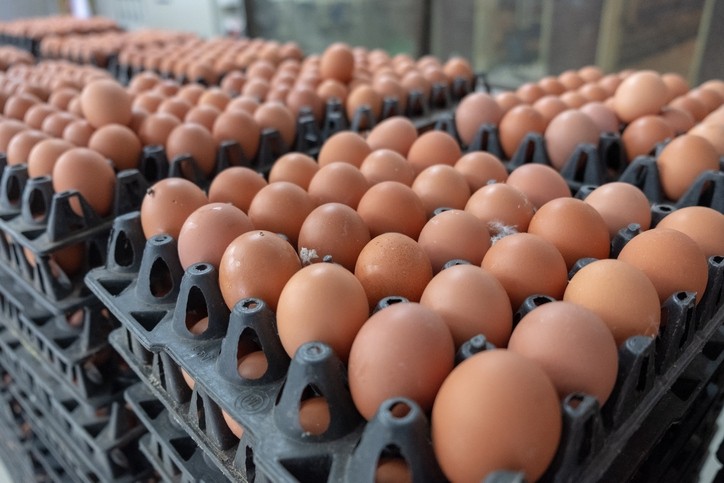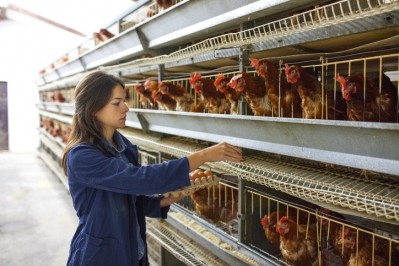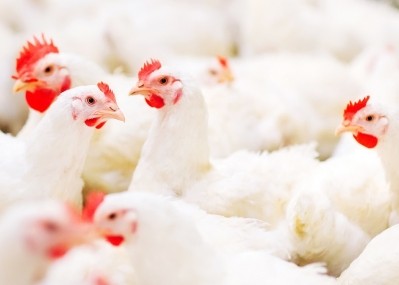Feeding layers extruded flaxseed can boost egg quality, and performance of the birds

Among other benefits, the Iranian and Australian research team found that dietary extruded flaxseed improved the fatty acids profile, blood factors, and antioxidant capacity of hens compared to birds fed other types of rations.
The study
The research team, writing in Animal Feed Science and Technology, said they evaluated the effects of three inclusion levels – 3, 6 and 9% - of different types of flaxseed – whole (WF), milled (MF), and extruded (EF) - on egg performance, egg yolk fatty acids (FAs), and lipids components in yolk and blood in 75 week old birds of the Hy-Line W-36 breed for nine weeks.
The team allocated 300 laying hens to ten treatments. Each treatment had six replicates containing five hens each.
They said egg performance, Haugh unit, feed intake, and egg production increased concomitantly with higher levels of flaxseed in the diet, but parameters such as shell thickness, shell strength, FCR, and egg mass remained unchanged. The extrusion method had the most positive effect on egg weight, egg production, and feed intake.
In respect of yolk FAs, as predicted, birds fed the 9% EF (9.31g/100 g) diet had the highest value of n-3 fatty acids. Consequently, they saw n-6/n-3 ratio improved from 9.20g/100 g in the yolk of chicks fed the control diet to 1.26 g/100 g in hens fed the 9% EF diets.
Cholesterol (CHO) in yolk, egg, and blood of hens fed 9% EF diet were significantly lower than in the control diet, but the total protein in their blood was significantly higher than in the control, said the team.
Although superoxide dismutase in the blood of birds fed the control diet was significantly higher than those fed 9% EF diets, serological enzymes in laying hens were not affected by the trial diets, said the team.
They concluded that feeding birds with 9% EF significantly improved most of the egg quality parameters, FAs profile, blood factors, and antioxidant capacity.
Therefore, they believe that extruded flaxseed, at inclusion levels of up to 90g/kg, can be employed as a useful method to help improve the productive performance of old laying hens in a commercial-scale setting without impairing their antioxidant system or inducing liver damage.
Source: Animal Feed Science and Technology
Title: Effects of extruded, milled, and whole flaxseed (Linum usitatissimum) on egg performance, lipid components, and fatty acids concentrations in yolk and blood, and antioxidant system of commercial laying hens
Authors: Kashani et al
DOI: https://www.sciencedirect.com/science/article/abs/pii/S0377840121000638















